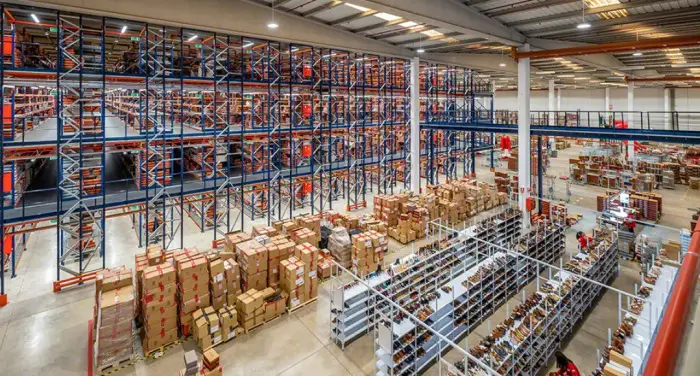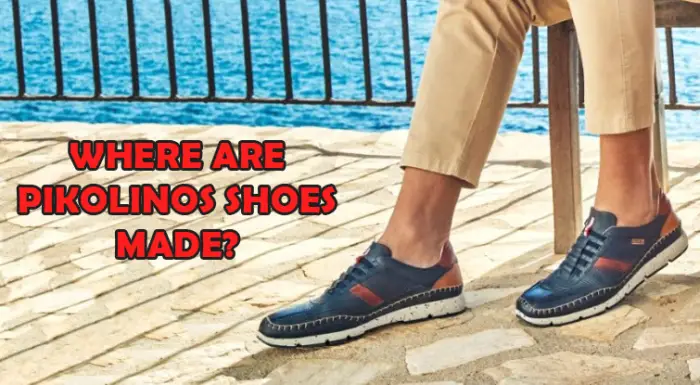Blog
Where Are Pikolinos Shoes Made?
Pikolino is a market leader in Spain and a member of BATA Group – with The North Face, Sorelle Amoré, and more.
If you admire the simple style and vivid color schemes of Pikolinos shoes, you might ask yourself, “Where are Pikolino shoes made?”
Let’s delve into the origin of Pikolinos shoes and the process of making these simple, sustainable footwear products.
Contents
Where Are Pikolinos Shoes Made?
Pikolinos shoes are made in two countries – Spain and China. Maintaining its footwear production in Europe and China allows Pikolinos shoes to comply with European standards while maximizing profit margins.
Spain

Spain is the home country of Pikolinos and also where it makes most of its shoes. This Spanish footwear brand has its most extensive facility in Segovia.
Besides, it has a factory outlet and outlet store in Ávila.
According to Juan Perán, Pikolinos’s honorary president, this Spanish footwear brand aims to produce at least 0.5 million pairs of shoes in its home country.
Yet, there is no detail on the number of factories and workers in this country.
Spanish-made Pikolinos shoes perfectly combine high-quality leather and innovative water-based leather finishing. The leather here (mainly calfskin) is selected from local tanneries.
They apply a water-based finish, producing soft, comfortable, yet durable shoes with wear and harsh weather conditions.
Check more: Where Are Born Shoes Made?
China
From its home country – Spain, Pikolinos expanded its shoe production to China. Until now, more and more Pikolinos shoes are made in China.
Since there are Spanish managers to control the entire production in its Chinese facilities, the quality of Pikolinos in China and Spain is the same.
Who Owns Pikolinos Shoes Now?
BATA Group is the current owner of Pikolinos. This family-owned business has over 125 years of history in footwear production with unparalleled customer service.
Aside from Pikolinos, BATA also owns other footwear firms like The Sorelle Amoré, North Face, Merrell, Roxy, Hanwag, and more.
More About Pikolinos Shoes

Pikolinos (Pikolinos Group) was founded in 1984 by Juan Perán – a Spanish footwear icon. This firm is headquartered in Alicante, Comunidad Valenciana, Spain.
From 2016 till now, this Spanish footwear brand has been led by executive president Juan Manual Perán and vice president Rosa Ana Perán – son and daughter of the brand’s founder.
Since 1984, Pikolinos has made comfortable shoes well-aligned with traditional Spanish craftsmanship.
Until now, Pikolinos shoes are widely distributed in more than 70 countries, with over 8,000 stores worldwide (Berlin, Belgium, Miami, and more).
Pikolinos mainly make shoes for men (90%), and some selected models for women (10%). Some popular models of this company are Bootie Le Mans, Maasai sandal with Heel, and San Sebastian W1T-8812.
How Pikolinos Shoes Are Made?
There are four reasons behind the hefty price tag of Pikolinos shoes – premium material, high craftsmanship, innovation, and sustainability.
Premium material
Pikolinos chooses leather as its primary material for all of its footwear products. They import the finest leather from local tanneries in this European country for all of its “made in Spain” shoes.
Its in-house tan process allows it to have complete control over the quality of the leather, resulting in higher durability and firmness.
Plus, the water-based leather top coat differentiates Pikolinos from other traditional leather shoes. This finish layer comprises waterborne polyurethane resin.
Water-bassed leather has various advantages over traditional ones, including excellent wear and water resistance, high finishing, high elasticity, and excellent chemical resistance.
Water-based leather finishing enhances the shoe’s look and improves the leather’s grade and protection.
High craftsmanship
Unlike mass-produced ones, Pikolinos are hand-made carefully by skillful Spanish artists.
Every embroidery and tiny studs are hand-sewed meticulously, creating a rigid bond between the leather parts rather than machine-sewed seams.
Innovative technology

Pikolinos stays balanced between traditional shoemaking and technology. It applies the latest innovations in its footwear products.
Its shoes are designed with super soft and squishy footbeds, providing ultimate support and protection all day long.
Their footbeds are also molded to your foot shape, just like your second skin, but still wear-resistant to withstand everyday wear and tear.
Sustainable production
Pikolinos aims for sustainable production while maintaining its signature tanned leather shoemaking. It lowers its environmental impact by using natural alternatives in production.
For instance, it uses vegetable-tanned leather, which wastes less water than chrome-tanned ones. It replaces synthetic dyes with natural ones and recycles water from tanning.
It also uses water-based adhesives and solvent-free dyes to let leather shine itself.
Final Words
Pikolinos shoes are manufactured mainly in Spain, with a transition to China to maximize its profit margins.
No matter where Pikolinos shoes are made, they always comply with European standards for their high craftsmanship, exclusive veg tan leather, modern technologies, and sustainability.

